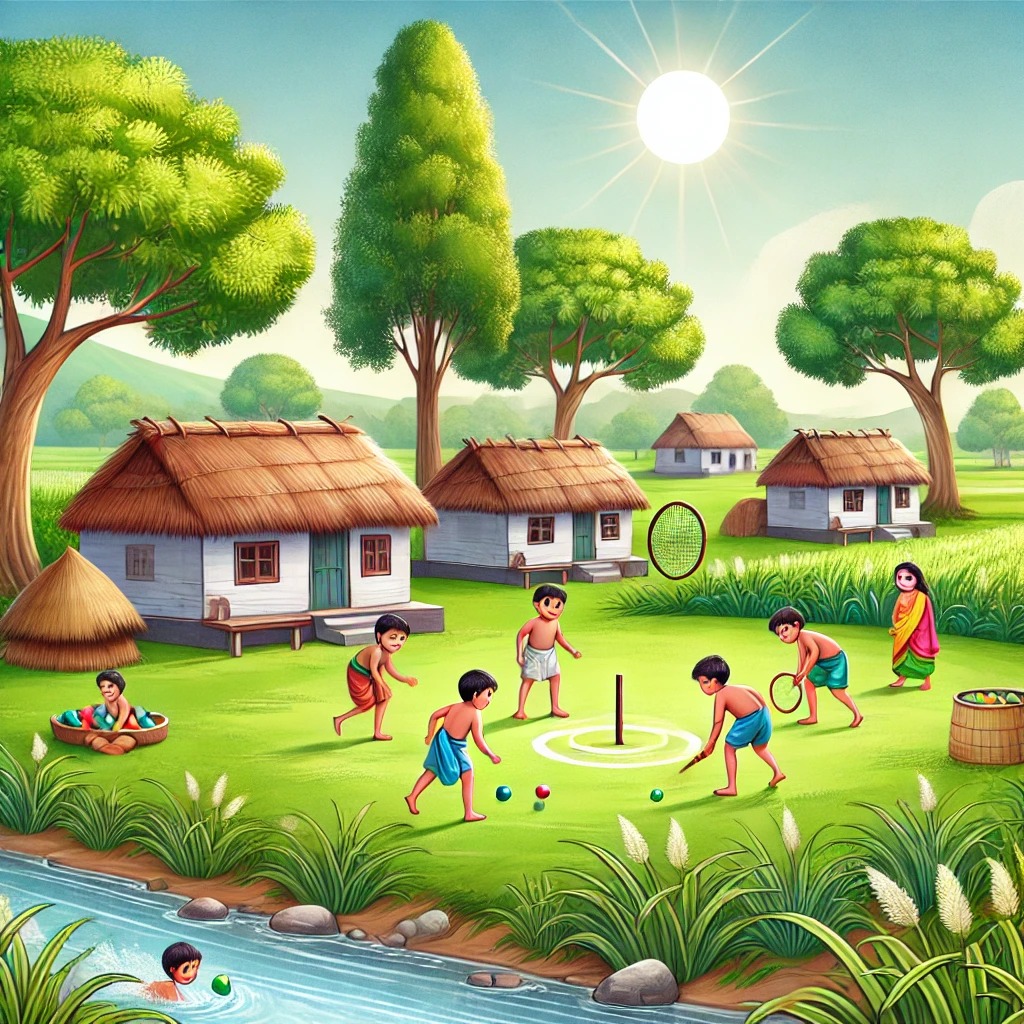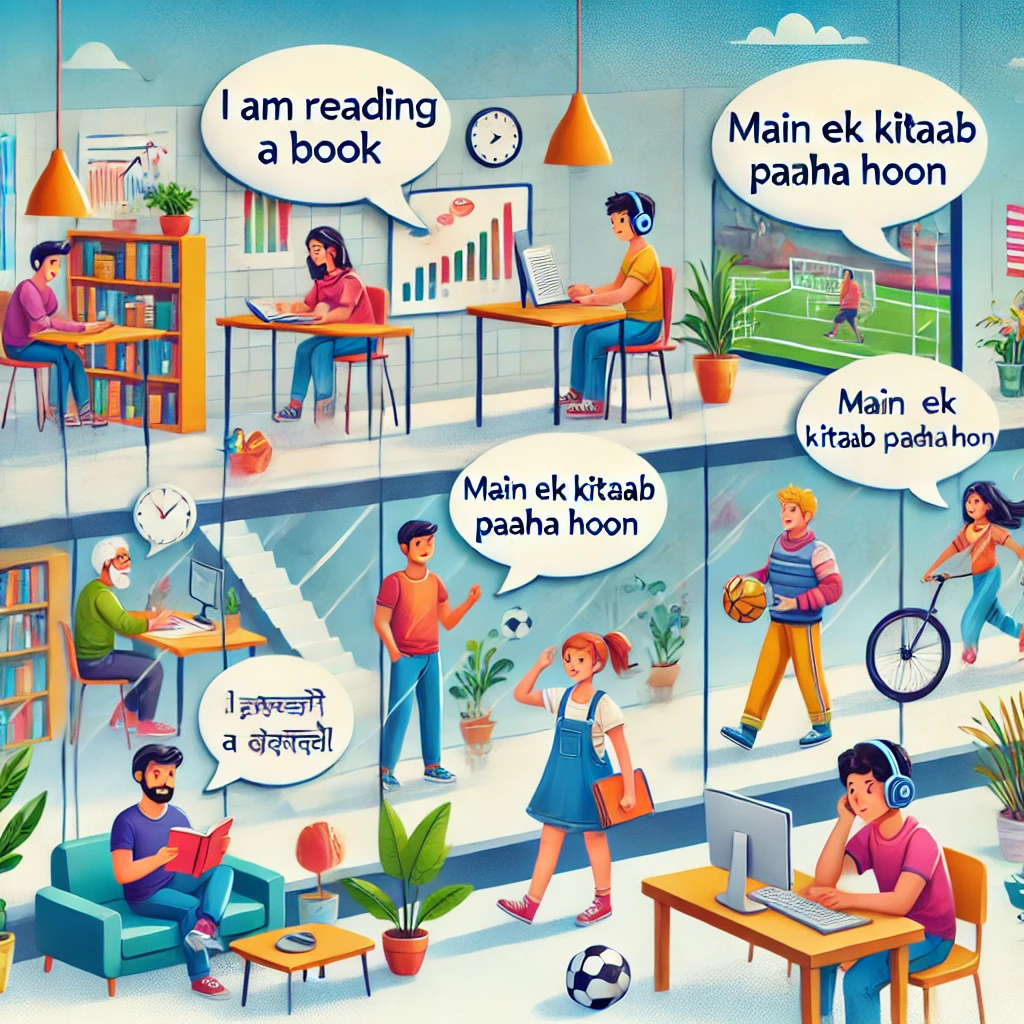Hindi Explanation:
भविष्य पूर्णे निरंतर काल (Future Perfect Continuous Tense) कहानी और गैर-कहानी लेखन में अलग-अलग तरीके से काम आता है। कल्पनात्मक लेखन में, यह पात्रों के भावी अनुभवों और कार्यों की निरंतरता को दर्शाता है, जिससे पाठक उनके भावनात्मक यात्रा को महसूस कर सकते हैं। उदाहरण के लिए, एक कहानी में, "वह दस साल से इस गाँव में रह रही होगी" कहने से पाठक को उसके जीवन के अनुभवों की एक लंबी अवधि की कल्पना करने में मदद मिलती है। गैर-कल्पनात्मक लेखन में, यह भविष्य में जारी रहने वाली घटनाओं या प्रक्रियाओं के बारे में जानकारी देता है। उदाहरण के लिए, "साल 2030 तक, भारत सौर ऊर्जा में अग्रणी देश बन रहा होगा" यह एक भविष्यवाणी है जो निरंतर प्रगति को दर्शाती है। कल्पनात्मक लेखन में यह भावनाओं और अनुभवों पर जोर देता है, जबकि गैर-कल्पनात्मक लेखन में यह तथ्यात्मक जानकारी पर केंद्रित होता है।
English Explanation:
The Future Perfect Continuous tense (will have been + verb-ing) functions differently in fictional versus non-fictional writing. In fiction, it highlights the sustained nature of a character's future experiences and actions, allowing the reader to feel their emotional journey. For instance, in a story, stating "She will have been living in this village for ten years" helps the reader envision a prolonged period of her life experiences. In non-fiction, it conveys information about ongoing events or processes in the future. For example, "By 2030, India will have been leading the world in solar energy" predicts sustained progress. In fictional writing, the emphasis is on feelings and experiences; in non-fiction, the focus is on factual information and projections based on current trends. The tense creates a sense of duration and ongoing action, impacting the narrative's tone and purpose in both contexts.
| English | Hindi | Roman Hindi |
|---|---|---|
| By next year, I will have been teaching for fifteen years. | अगले साल तक, मैं पन्द्रह साल से पढ़ा रहा/रही हूँगा/होगी। | Agle saal tak, main pandrah saal se padha raha/rahi hunga/ hogi. |
| They will have been working on the project for two months. | वे दो महीने से उस परियोजना पर काम कर रहे/रही होंगे। | Ve do mahine se us pariyojana par kaam kar rahe/rahi honge. |
| She will have been studying English for five years. | वह पाँच साल से अंग्रेज़ी पढ़ रही होगी। | Wah panch saal se angrezi padh rahi hogi. |
| We will have been living here for a decade. | हम दस साल से यहाँ रह रहे होंगे। | Ham das saal se yahan rah rahe honge. |
| He will have been traveling the world for a year. | वह एक साल से दुनिया घूम रहा होगा। | Wah ek saal se duniya ghum raha hoga. |
| The company will have been operating for twenty years. | कंपनी बीस साल से चल रही होगी। | Company bees saal se chal rahi hogi. |
| By then, they will have been building the bridge for three years. | तब तक, वे तीन साल से पुल बना रहे होंगे। | Tab tak, ve teen saal se pul bana rahe honge. |
| The farmer will have been cultivating rice for decades. | किसान दशकों से धान की खेती कर रहा होगा। | Kisan dashakon se dhan ki kheti kar raha hoga. |
| Will you have been waiting long? | क्या आप बहुत देर से इंतज़ार कर रहे होंगे? | Kya aap bahut der se intezaar kar rahe honge? |
| The birds will have been singing all morning. | पक्षी सारी सुबह से गा रहे होंगे। | Pakshi saari subah se ga rahe honge. |




